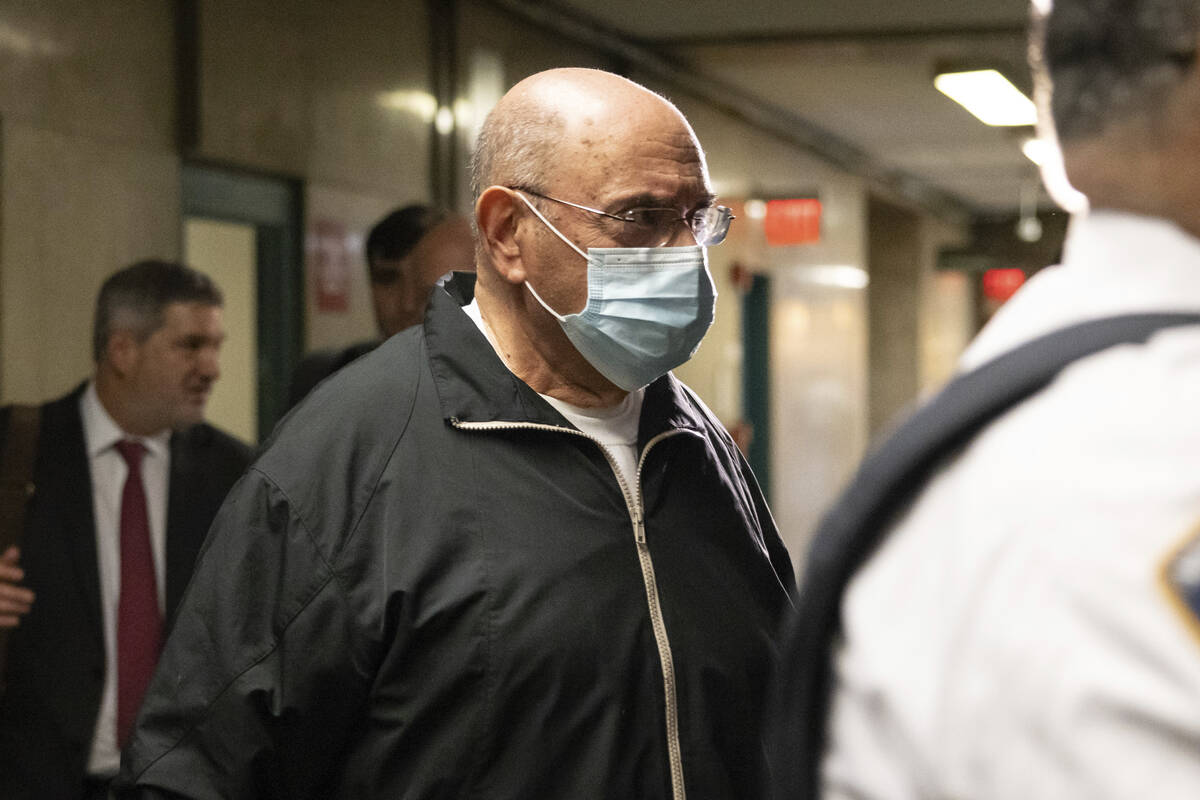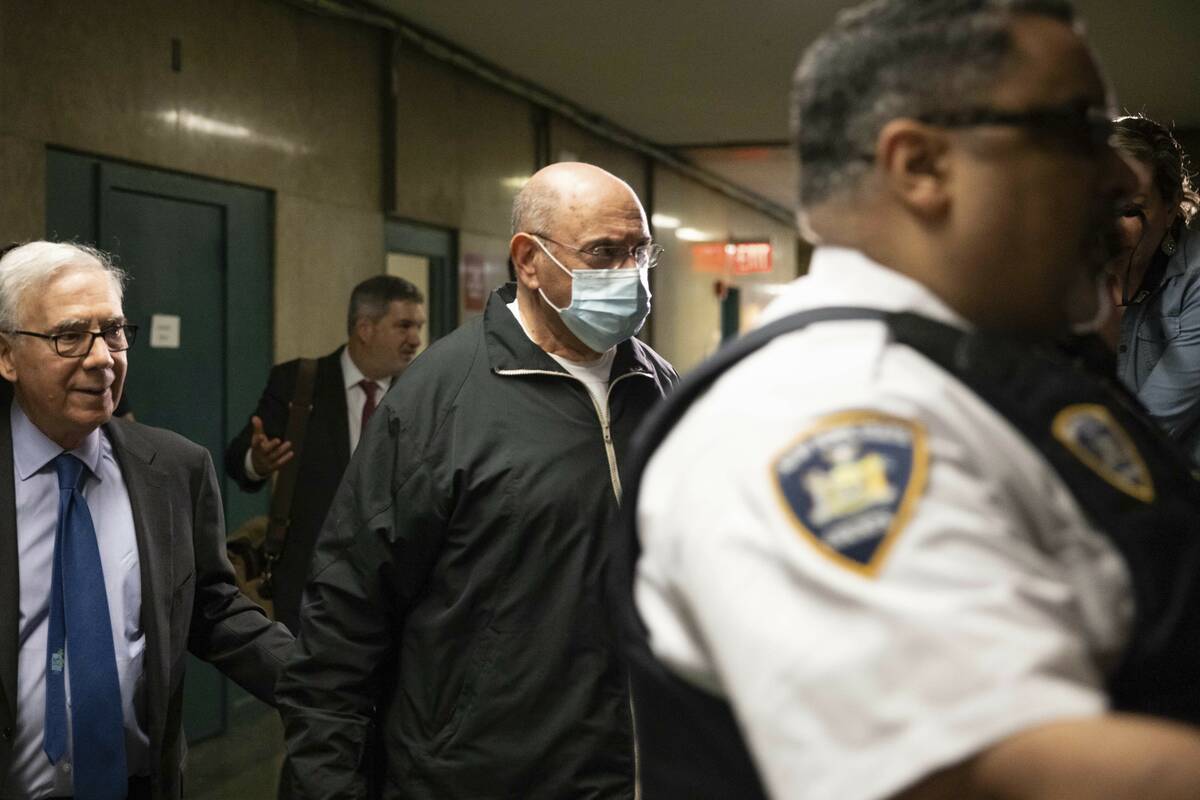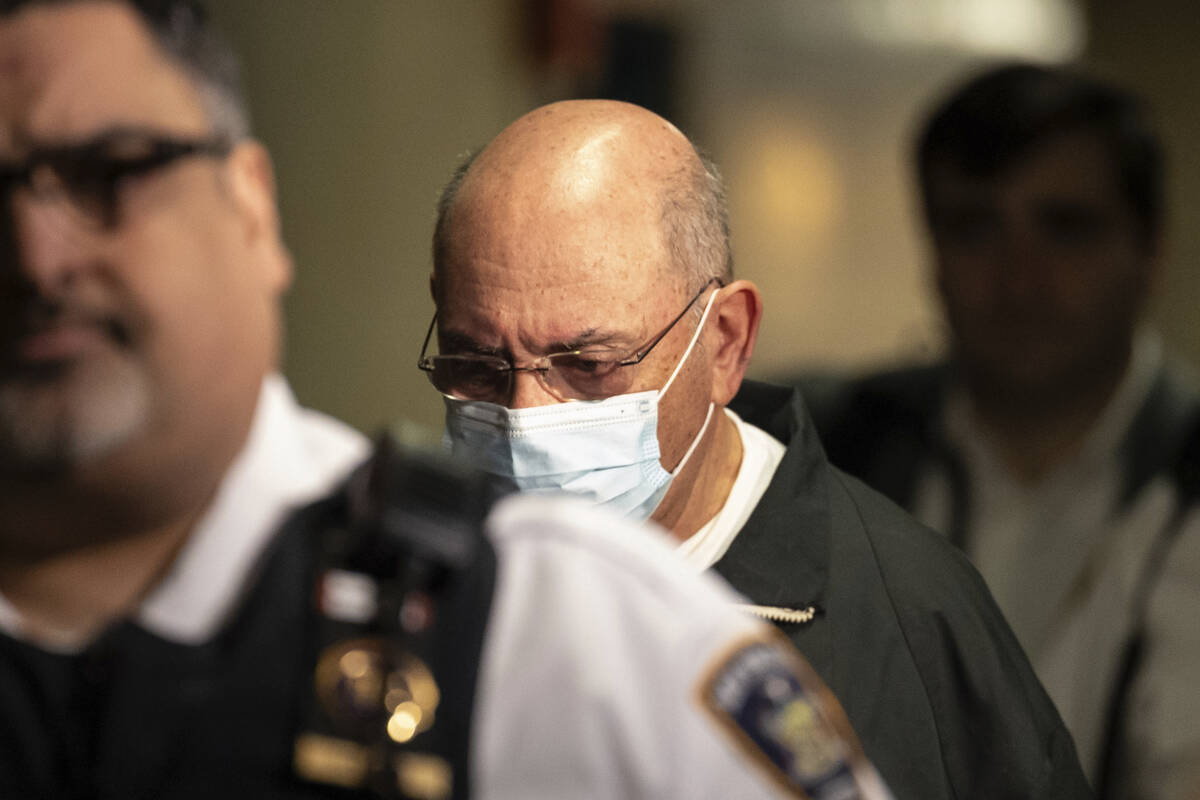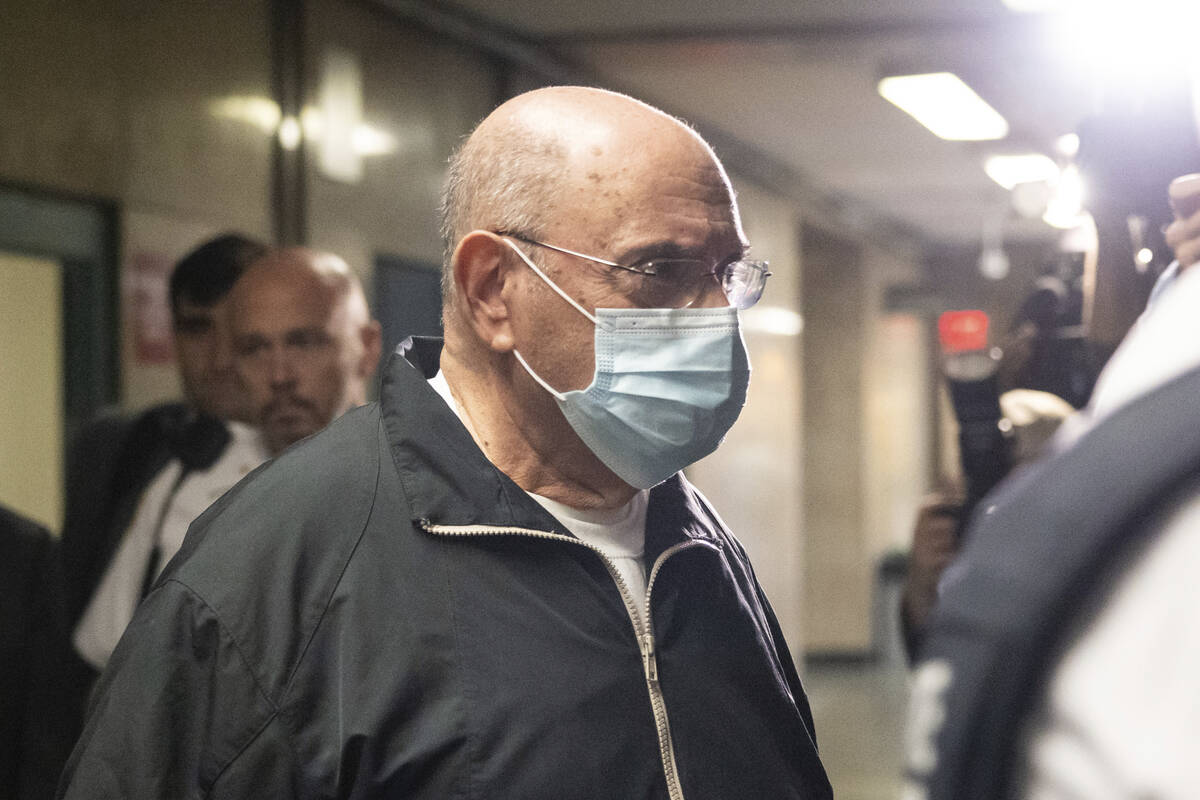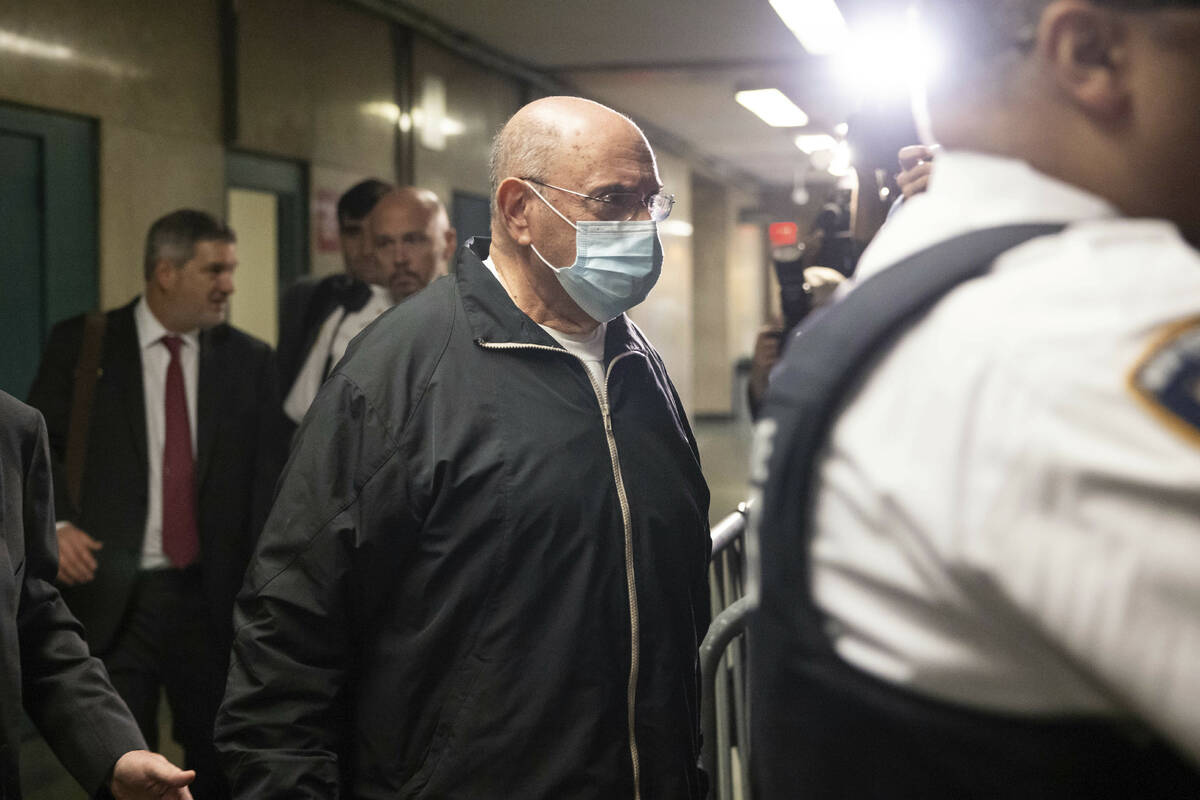Former Trump executive gets 5 months for lying in civil fraud case
NEW YORK — Allen Weisselberg, a retired executive in Donald Trump’s real estate empire, was sentenced on Wednesday to five months in jail for lying under oath during his testimony in the civil fraud lawsuit brought against the former president by New York’s attorney general.
Weisselberg, 76, pleaded guilty last month to two counts of perjury in connection with the suit. He admitted lying when he testified he had little knowledge of how Trump’s Manhattan penthouse came to be valued on his financial statements at nearly three times its actual size.
Weisselberg, wearing a black windbreaker and a surgical face mask, declined to address the court during the brief sentencing, which lasted less than five minutes. He was swiftly escorted from the courtroom in handcuffs following the proceeding to begin serving his sentence.
It will be Weisselberg’s second time behind bars. The former Trump Organization chief financial officer served 100 days last year for dodging taxes on $1.7 million in company perks, including a rent-free Manhattan apartment and luxury cars.
Now, he’s again trading life as a Florida retiree for a stay at New York City’s notorious Rikers Island jail complex.
The two cases highlight Weisselberg’s unflinching loyalty to Trump, the presumptive Republican presidential nominee.
Trump’s family employed Weisselberg for nearly 50 years, then gave him a $2 million severance deal when the tax charges prompted him to retire. The company continues to pay his legal bills.
Weisselberg testified twice in trials that went badly for Trump, but each time he took pains to suggest that his boss hadn’t committed any serious wrongdoing. His plea agreement does not require him to testify at Trump’s hush money criminal trial, which is scheduled to start with jury selection Monday.
In agreeing to a five-month sentence, prosecutors cited Weisselberg’s age and willingness to admit wrongdoing. In New York, perjury is a felony punishable by up to seven years in prison. Prosecutors promised not to prosecute Weisselberg for other crimes he might have committed in connection with his Trump Organization employment.
Weisselberg’s sentence mirrors his previous case, in which he was ordered to serve five months in jail but was eligible for release after little more than three months with good behavior. Prior to that, he had no criminal record.
Trump’s lawyers took issue with Weisselberg’s perjury prosecution, accusing the Manhattan district attorney’s office of deploying “unethical, strong-armed tactics against an innocent man in his late 70s” while turning “a blind eye” to perjury allegations against Michael Cohen, the former Trump lawyer who is now a key prosecution witness in the hush money case.
Prosecutors with Manhattan District Attorney Alvin Bragg’s office and Weisselberg’s lawyer Seth Rosenberg declined to address the court.
Weisselberg pleaded guilty March 4. He admitted lying under oath on three occasions while testifying in New York Attorney General Letitia James’ lawsuit against Trump: in depositions in July 2020 and May 2023 and on the witness stand at the trial last October. To avoid violating his tax case probation, however, he agreed to plead guilty only to charges related to his 2020 deposition testimony.
The size of Trump’s penthouse was a key issue in the civil fraud case.
Trump valued the apartment on his financial statements from at least 2012 to 2016 as though it measured 30,000 square feet (2,800 square meters). A former Trump real estate executive testified that Weisselberg provided the figure. The former executive said that when he asked for the apartment’s size in 2012, Weisselberg replied: “It’s quite large. I think it’s around 30,000 square feet.”
However, state lawyers noted, Weisselberg got an email early in that year with a 1994 document attached that pegged Trump’s apartment at 10,996 square feet (1,022 square meters). Weisselberg testified that he remembered the email but not the attachment and that he didn’t “walk around knowing the size” of the apartment.
After Forbes magazine published an article in 2017 disputing the size of Trump’s penthouse, its estimated value on his financial statement was cut from $327 million to about $117 million.
As Weisselberg was testifying last October, Forbes published an article with the headline “Trump’s Longtime CFO Lied, Under Oath, About Trump Tower Penthouse.”
The civil fraud trial ended with Judge Arthur Engoron ruling that Trump and some of his executives had schemed to deceive banks, insurers and others by lying about his wealth on financial statements used to make deals and secure loans. The judge penalized Trump $455 million and ordered Weisselberg to pay $1 million. They are both appealing.
In his decision, Engoron said he found Weisselberg’s testimony “intentionally evasive” and “highly unreliable.”
Weisselberg is likely to factor into Trump’s hush money trial — even if he’s in jail and not on the witness stand while it’s happening.
Trump is accused of falsifying his company’s records to cover up payments during his 2016 campaign to bury stories of marital infidelity. It is the first of Trump’s four criminal cases scheduled to go to trial. Trump has pleaded not guilty and denies wrongdoing.
Cohen has said Weisselberg had a role in orchestrating the payments. Weisselberg, who lives in Boynton Beach, Florida, has not been charged in that case, and neither prosecutors nor Trump’s lawyers have indicated they will call him as a witness.



